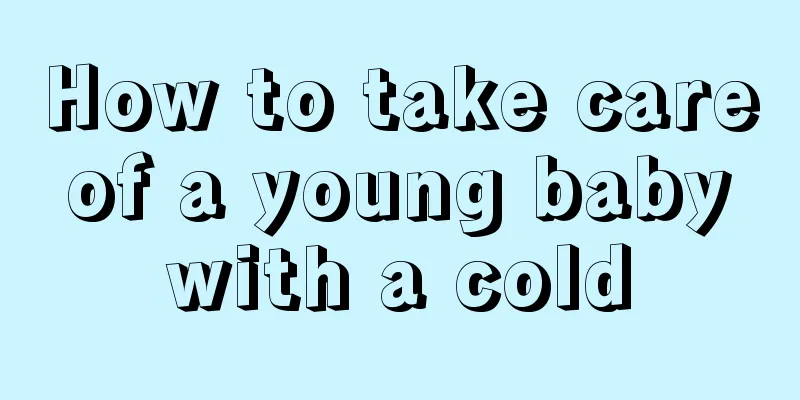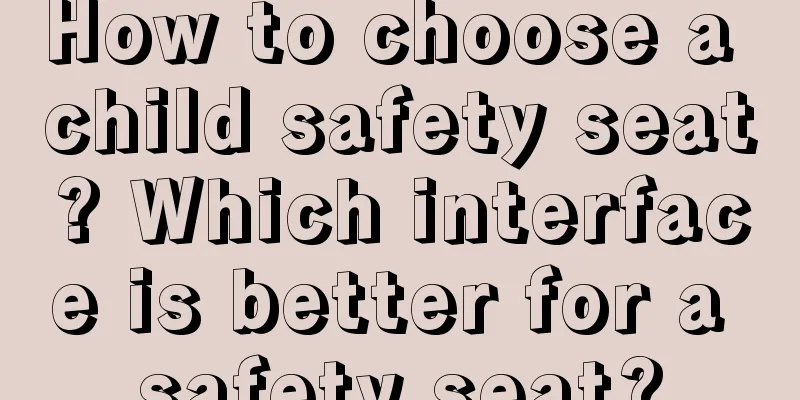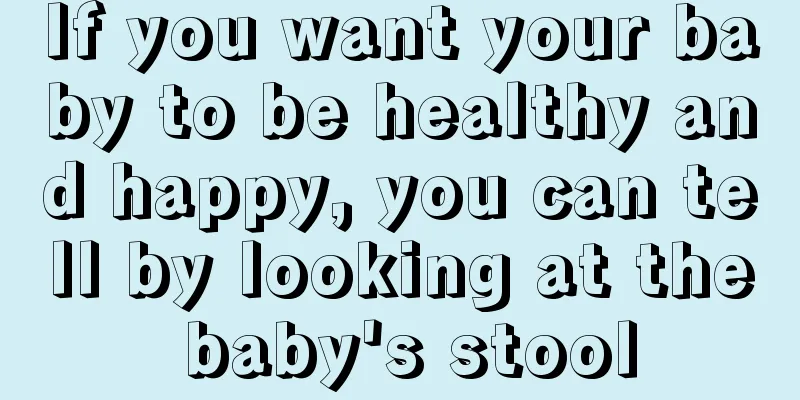How to do newborn hearing screening and what are the indicators

|
Newborn hearing is very important. Babies can understand the world through hearing. So how to do newborn hearing screening? What are the newborn hearing development indicators? What are the precautions for newborn hearing screening? The following editor will introduce you in detail. How to do newborn hearing screeningNewborn hearing screening is to screen out newborns who may have hearing impairments through an objective, simple and rapid method, and further confirm and follow up. Common methods for newborn hearing screening include otoacoustic emissions (OAE) and automated auditory brainstem response (AABR). Both technologies are currently internationally recognized and non-invasive. Most hospitals in my country use otoacoustic emissions for hearing screening, and automated auditory brainstem response (AABR) is mainly used for hearing screening of newborns in the intensive care unit (NICU). A normal cochlea can produce a very soft sound, which is transmitted to the external auditory canal through the ossicular chain and the eardrum and can be detected. If the baby has cochlear hearing loss, no otoacoustic emissions will be produced, and the otoacoustic emission (OAE) test will fail. The automatic auditory brainstem response (AABR) can reflect the function of the external ear, middle ear, cochlea and cochlear nerve pathway. If the automatic auditory brainstem response fails, it means that there may be a problem in the auditory pathway. Generally, when the baby is sleeping quietly, place a probe or earmuff of appropriate size on one ear of the baby to start the test. After one ear is done, do the other ear. If OAE or AABR fails, rescreening or referral is required. Hearing development indicators of newborns0-7 days old baby's vision development Babies already have hearing. Most babies can respond to auditory stimulation once or twice within 24 hours of birth, and are also very sensitive to the voices of adults. Adults can speak softly next to the baby and observe whether the baby reacts differently to the changes in the voice. 8-30 days old baby's vision development Hearing is fully developed, and he will pay close attention to human voices and will also be sensitive to noises. Talk to your baby next to you, and he will turn his head to familiar sounds and words. Newborn hearing screening considerationsThe referral form for newborn hearing screening should be registered, including basic information such as name, gender, contact number, address, mother's name, referral unit, etc. The relevant information of hearing screening should be kept well, including each report. Newborns who fail the initial hearing screening should have their files kept, and parents should be informed to bring their babies for re-screening within 42 days to 3 months. Those who still fail the re-screening will receive an audiological diagnosis. Children with hearing impairment and newborns at high risk of deafness should be tracked and followed up, and the files should be kept for at least 10 years. The newborn hearing screening data in the computer should be backed up and saved. Paper documents must be protected from moisture, humidity, fire and insects. The files must be kept confidential. No one may access the files without the permission or authorization of the center director. If the guardian of the newborn baby requests to access or copy the relevant information, relevant procedures must be followed. What to do if your newborn baby fails the hearing screening?1. Do a good hearing review Usually the hospital will recommend that the baby return to the hospital for a physical examination when the baby is one month old or 42 days old. If your baby's hearing has not passed the test before, a re-screening will be conducted. If the baby passes the test, congratulations, the child's hearing is generally considered normal. No further examination is needed for the time being. However, as the child grows up, you are advised to pay attention to your child's reaction to sound or whether the child's speaking age is similar to that of the surrounding children. If there is a big difference, you should go to the hospital to rule out hearing problems. If the baby still fails the test, don't panic too much, because even if the re-screening fails, the possibility of being diagnosed with hearing problems is only about one in ten. 2. Do a diagnostic hearing test If the baby has not passed the test, you must take the baby to a reliable children's hearing diagnosis center for diagnostic audiological examinations and medical examinations within 3 months (not necessarily until 3 months, the earlier the better). Even if the hearing screening fails in one ear, it is no exception. If the hearing problem is diagnosed in one ear, you should pay more attention to the child's hearing, because the proportion of such children with delayed hearing problems is greatly increased. The three basic tests of high-frequency detection sound impedance (1000Hz), otoacoustic emissions, and auditory brainstem response are required. If they are all within the normal range, it can be considered to have passed the test. If the baby fails, it depends on the specific results. If necessary, additional tests should be done to understand the degree of hearing loss (mild, moderate, severe, and extremely severe), nature (conductive, sensorineural, mixed), and location (external ear, middle ear, inner ear, and auditory nerve) of the baby. Sometimes, some medical evaluations other than hearing are also required. At this time, it is best to find a doctor who is proficient in pediatric audiology to explain and comprehensively evaluate the results of the examination. 3. Action is the key It should be emphasized that it is not terrible to find that the baby has hearing problems, but it is terrible to take no action. Because even if the child has hearing problems, as long as early intervention (within 6 months), current scientific means can basically make the child speak normally. In the past, it was often said that "nine out of ten deaf people are dumb", but now medicine can completely make "nine out of ten deaf people are not dumb". |
>>: How to safely remove the baby's nasal mucus? What are some tips?
Recommend
What are the symptoms of fetal heart development? Don't be nervous if there are 4 abnormalities
The first type of pregnant women are often sleepy...
What is good for baby's breakfast? What is a nutritious breakfast for baby?
I think mothers with babies must be very worried ...
Does abnormal uterine development affect pregnancy?
Cases of uterine dysplasia are often heard. When ...
What foods are best for gestational diabetes? Can gestational diabetes eat blueberries?
Gestational diabetes is a relatively dangerous di...
Can sweet potato leaves be eaten during breastfeeding? Can sweet potato leaves be eaten by pregnant women?
Sweet potatoes are really treasures all over. Not...
Can eating eggs improve intelligence?
Eggs are rich in nutrients and are very suitable ...
How long can I take a bath after a caesarean section? The correct way to take a bath after a caesarean section and the precautions
Giving birth can be divided into natural birth an...
How to remove cesarean section scars? Can cesarean section scars be removed?
Although cesarean section is easier than natural ...
What is the lack of children who are thin? Can children who are thin eat protein powder?
Usually most children are thin, because most chil...
What to do if your baby stutters? What is the reason for your baby stuttering?
When babies are learning to speak, they have a st...
How to tell if your baby is hot or cold How to tell if your baby is hot or cold
Many parents are new parents and have no parentin...
How to use floral water to repel mosquitoes Why can floral water repel mosquitoes
Everyone should know that floral water can repel ...
What is a good breakfast for kindergarten babies? What is a nutritious breakfast for kindergarten babies?
The baby's nutrition should be taken care of ...
What kind of filling material is good for baby shaping pillow? How to clean baby shaping pillow?
Usually most babies like to move when they sleep,...
What causes the baby's XO leg shape abnormality?
Why do children's legs have different shapes?...









